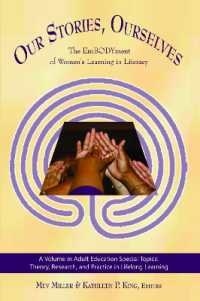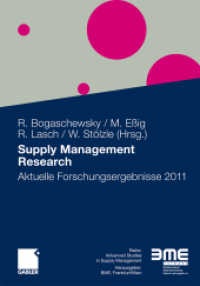- ホーム
- > 洋書
- > ドイツ書
- > Social Sciences, Jurisprudence & Economy
- > Education Science / Pedagogic
- > adult education
Full Description
The book also addresses the faculty's role in promoting social accountability and examines the global perspectives and challenges in advancing social accountability internationally.








